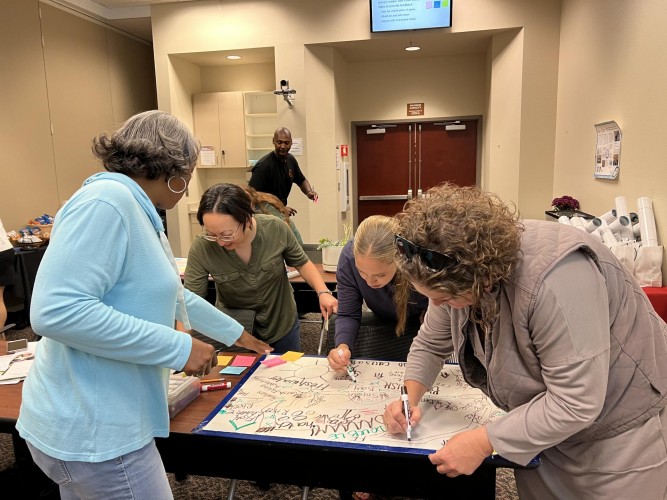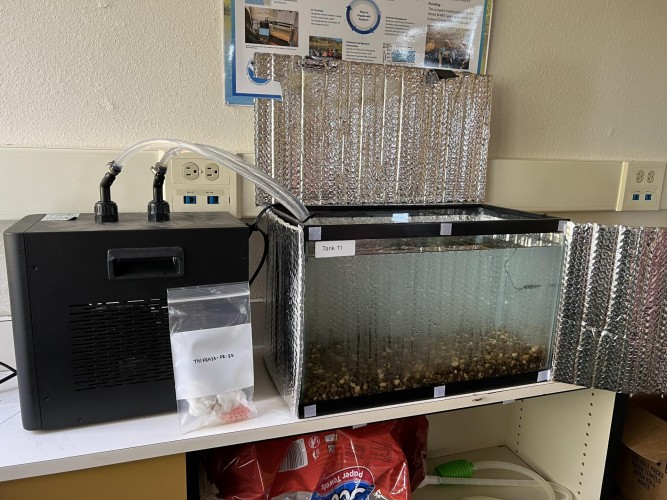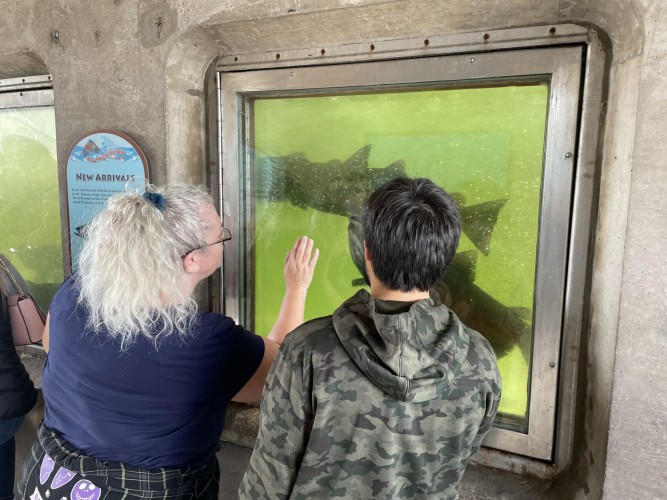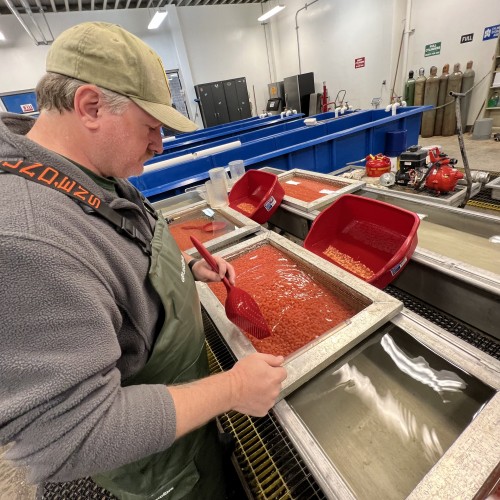Project Update: The Eggs Have Arrived! Spinning Salmon Year Three
Deepening our collaboration and community connections
The Center for Community and Citizen Science has been collaborating with a broad coalition of researchers working to understand the complex puzzle of Thiamine Deficiency Complex (TDC) impacting California’s Central Valley salmon populations. We have developed Youth-Focused Community and Citizen Science (YCCS) data collection protocols and classroom resources to support students’ submission of high-quality data as part of the Classroom Aquariums Program through the California Department of Fish and Wildlife (CDFW). Students submit data on behavior and mortality rates of the salmon. The data students are submitting is helping the research team understand the impacts of TDC on these early life stages.
We are partnering for a third year with the GEAR UP STEM Rural Valley Partnership College Opportunity Program to serve Glenn, Tehama, and Colusa counties, along with Solano County Office of Education as part of their NOAA B-WET grant serving Solano County. To learn more about the Spinning Salmon program in Glenn, Tehama, and Colusa counties, visit the project page, and in Solano county, visit the project page.
 This fall, we held regional teacher
professional development sessions to launch year three of our
Spinning Salmon program. We trained 24 teachers from Glenn,
Tehama, Colusa and Solano counties, alongside 5 advisors from the
GEAR UP program using our research-based framework for best
practices when conducting YCCS programs. Teachers were also
trained and permitted by CDFW through the Aquariums in the
Classroom Program which allowed each classroom to receive salmon
eggs for observation.
This fall, we held regional teacher
professional development sessions to launch year three of our
Spinning Salmon program. We trained 24 teachers from Glenn,
Tehama, Colusa and Solano counties, alongside 5 advisors from the
GEAR UP program using our research-based framework for best
practices when conducting YCCS programs. Teachers were also
trained and permitted by CDFW through the Aquariums in the
Classroom Program which allowed each classroom to receive salmon
eggs for observation.
 Following the training, classrooms
were outfitted with tanks and chillers that allowed them to
receive untreated salmon eggs. Over the next 8 weeks, students
will monitor the salmon hatch rate, mortality rate and behavior
as they learn more about the issues impacting salmon as well as
their local watershed and ecosystem.
Following the training, classrooms
were outfitted with tanks and chillers that allowed them to
receive untreated salmon eggs. Over the next 8 weeks, students
will monitor the salmon hatch rate, mortality rate and behavior
as they learn more about the issues impacting salmon as well as
their local watershed and ecosystem.
Students in the GEAR UP program started off their learning with a visit to Feather River Fish hatchery in Oroville. They saw firsthand how the salmon hit the barrier dam below Oroville Dam, enter the fish ladder, and be processed inside the facilities. Students asked staff questions as they made their way from the sorting room to where the eggs are stored. They saw staff fertilize the very same eggs that the students are observing in their classrooms!
We’re off to an exciting start for year three, which
includes: 
- Facilitated collaboration between classrooms and the research team directly as well as supports for student outreach and advocacy. (guest speakers, Q&A, field trips, etc.)
- Resources to support a wider diversity of student needs, including supports for engagement with students supported by a deaf and hard of hearing program.
- Additional ways to engage with students’ funds of knowledge, engage with content across multiple disciplines, and additional ways for students to express their understanding and engage with the broader problem impacting their local ecological system.
- Collaboration and field trips with connections to community-based partners working on local habitat restoration projects.









